The minds behind Life is Strange: Before the Storm talk Farewell reunions, Backtalk challenges, and asking players to be more aggro
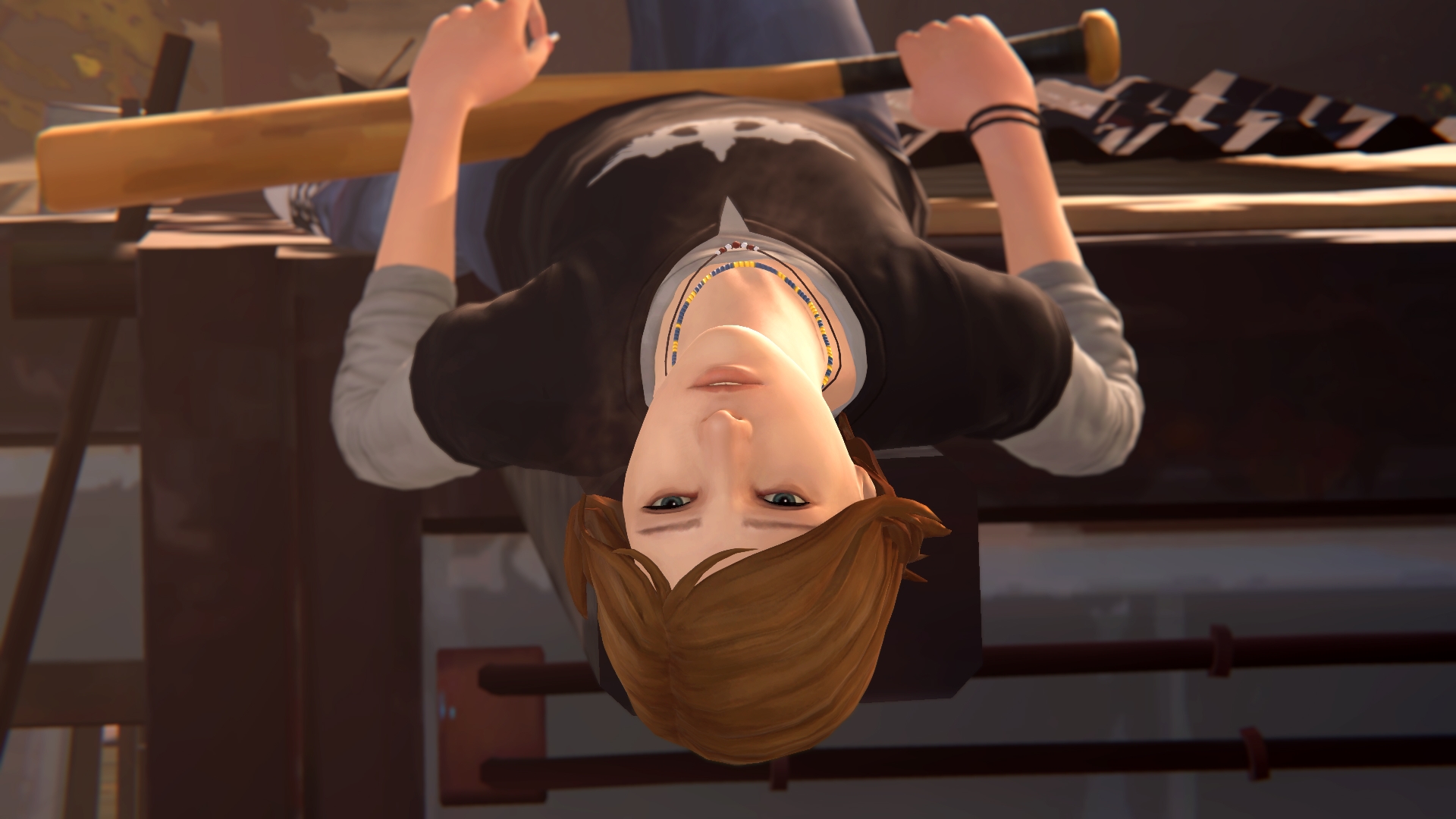
If you've finished all three episodes of Life is Strange: Before the Storm, then you already know: against all odds, developer Deck Nine managed to create a narrative that's just as powerful and poignant as Dontnod's original game. Being able to play as the fan-favorite Chloe Price and actually get to know the fabled Rachel Amber is a fantastic way to spend more time in Arcadia Bay - and fortunately, the Life is Strange story isn't over just yet.
In early 2018, Deck Nine will debut a bonus episode entitled Farewell, where you play as a younger Max Caulfield (before her time-powers kicked in) as she playfully pals around with her best friend Chloe. Voice actor Ashly Burch (who you can read all about in our related interview revolving around Horizon Zero Dawn) will be reprising her role as Chloe, with Hannah Telle coming back as Max, creating the kind of heartwarming reunion that'll pull at the heartstrings of anyone who played both seasons and fell in love with these characters. We sat down with Burch and co-game director Chris Floyd (who previously enlightened us on Before the Storm's design) to talk about the significance of the Farewell episode, the challenges of designing Chloe's Backtalk power, and how players and designers alike have a stake in a narrative game's many choices.
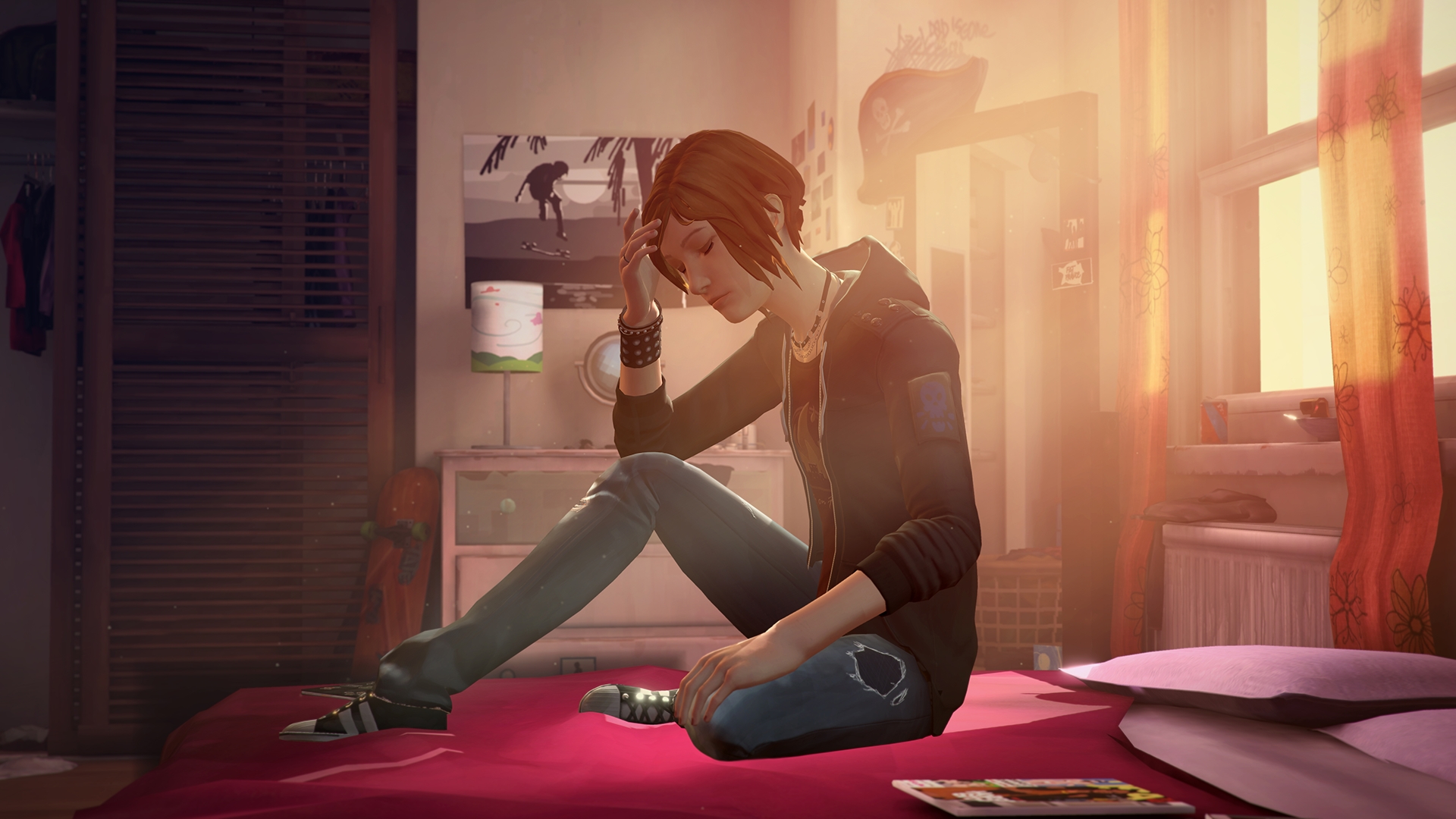
How did the idea for the Farewell bonus episode come about?
Chris Floyd: I think that was an idea that Square Enix had from pretty early on. Most of this [season] is really about bringing something for the fans who loved Arcadia Bay, who want to get to know the characters that much more and see more of them. But there was something special about having one more chance to play as Max again. When we determined that [Before the Storm's] story was going to be about Chloe, when Max is gone, we knew there would be players who missed Max. That's really what Farewell is for them.
Ashly, what is it like sort of getting back into Chloe's character for Farewell after so much time has passed?
Ashly Burch: It's interesting, because it's a younger Chloe. In certain ways, she's very much the same character. In other ways, she hasn't gone through a lot of the events of Before the Storm or the first season yet - so there's a lightness to her that doesn't exist, I think, later when you meet her in the original game. It's like you're visiting an old friend who's somehow four years younger. There was a bit of adjustment there, and trying to think about how you stay true to the attitude of Chloe. Then you start to think about what parts were cultivated because of the events that she went through, and what parts were intrinsically her before all the stuff that she went through. It was also just great to come back.
How do you dial down the age of a character that you've already played? Is it as simple as making your voice a little higher pitched?
Burch: There is that. She does sound a little bit younger. It's also the attitude: Chloe is kind of spunky and sassy no matter what, but maybe she's a little less darker, resentful, angry, than she later becomes. You see that transition over the course of Before the Storm as well, though she's not as wounded as when you see her in the original season. They're like gradations of Chloe. She gets on a spectrum of angst and anger, I guess. [laughs]
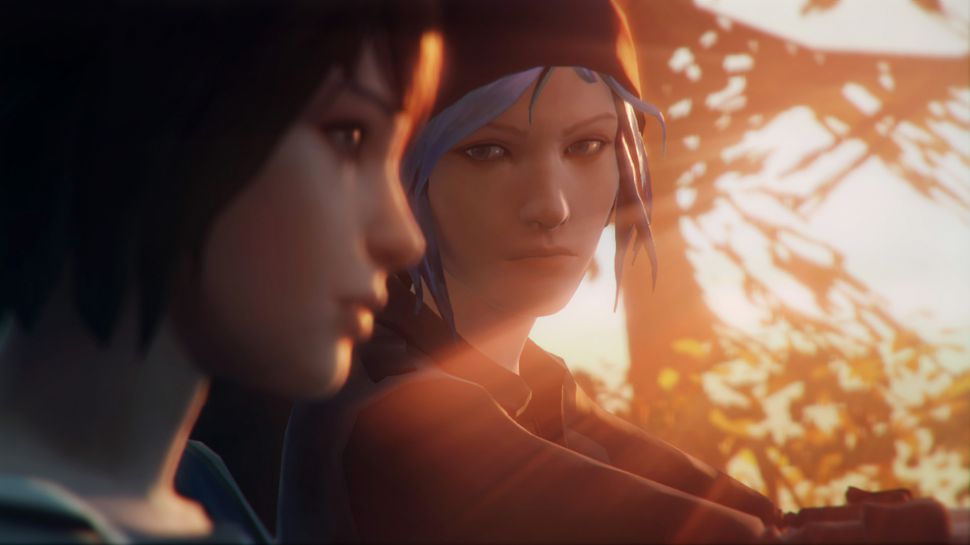
If you played the original season then you already know. Life is Strange is that rare, wonderful thing: A choice-based video game in which you are not the center of the universe.
What was it like working with Hannah [Telle] as Max again for the Farewell episode?
Burch: It was so great. I feel like Hannah and I went through such a good emotional rollercoaster with that game. We both got really attached to it. If you played the first season, you know the later episodes are very heart-wrenching, so Hannah and I spent a fair amount of time in the booth together crying. It was good to see her again and have it be a little bit lighter and happier and fun. I love Chloe, and I know Hannah loves Max and feels a great connection to her. It was just a really lovely thing. It felt like a reunion.
Has there ever been a choice that you reworked because players just weren't understanding or enjoying the outcome?
Floyd: Yeah - choices are one of the things we work and rework a lot. In many cases - particularly the ones we really know are crucial and we want to be really agonizing - we try to get to a point where we feel like 50% of people are going to go in one direction and 50% of people would go in the other direction. If that's the case, then that usually means [the best-case scenario]: they're going to have a really hard time deciding. That can come down to very fine tuning work on the language that you see in those choices. For instance, [early on in Before the Storm: Episode 2 when you can] take the blame from Rachel, we go back and forth on things, like: do we mention Rachel in that line? Are players more likely to think "I just do whatever I want," or "I just want to do what Rachel wants"? Does that tilt you one way or the other way? We work a lot on this balance, all the factors that lead into those big decisions.
Weekly digests, tales from the communities you love, and more
Burch: I remember specifically coming back for pickups for the last episode [of the first season], because the team was like, "We're really afraid that everyone's just going to choose this one option, so we really feel like in testing it and going through it, we have to balance it out and put more in." I'm sure it's a really hard thing, to gauge the caliber of each choice.
Floyd: It's very tricky. To some degree, it's guesswork. Again, it's something we look very closely at during focus group test results, then we see what we can do to tune it. If we're lucky, it's far enough ahead of time that we can then get some new dialogue and video if we need it.
"It feels like the first game is a lot of Chloe's story told through Max's eyes. I think that Before the Storm is very much Rachel's story told through Chloe's eyes."
Ashly Burch
How do you go about writing the lines for Chloe's backtalk sequences? Is it a matter of finding the sassiest possible response?
Floyd: That's easily the most difficult thing, speaking for all our writers here. I feel pretty confident in this, because they've told me this. [laughs] In terms of game design, we had to figure out how Backtalk worked, how to write those responses, and how to make them good, how long they needed to be. When Backtalk comes up, the writers will scowl at me for putting them through that. [laughs] It's really, really tough. You have to deal with a kind of word game on one level, matching the ideas to the responses, with the lines that you've heard from the opponent. But you also have to get some content, an emotional content, across. It's very complex. I'm really proud of our writers for how many of them they wrote and how well they came out.
Ashly, after playing Chloe in the first season, could you instantly tell what felt right for her to say (and what didn't) when you were writing and consulting on the script for Before the Storm?
Burch: It was mostly stuff like nuanced little tweaks of things that didn't necessarily feel like her. Would she be this vulnerable this quickly? Would she maybe try to obfuscate this emotion with a snide remark? How much is it stuff coming out sideways, and how much is she actually open? It was mostly just trying to track her psychologically, being true to the first season, while also remembering that a lot of the stuff that happened to her to make her the way she is in the first season, hasn't happened yet. I've been playing a lot of Super Mario Odyssey, and it makes me think of those Trace-Walking challenges. It's basically like that: you want to keep mostly within the shape. It feels like the first game is a lot of Chloe's story told through Max's eyes. I think that Before the Storm is very much Rachel's story told through Chloe's eyes.
How easy or difficult is it to get back into character for the Farewell episode after time away? Is it like picking up a book off the shelf and thinking, "Oh yeah, I remember how to be this character!" Or is it trickier than that?
Burch: It's interesting, because this is a younger Chloe. I played a younger Chloe in the first season for a very brief period, but obviously the older Chloe is the Chloe I know much more intimately. Like I said earlier, there's a little bit of an adjustment of having to think, "Ok, we're spending a lot of time with this younger Chloe. How is Before the Storm Chloe different from the Chloe that I established in the first game?" When I've spent enough time with a character, they more or less become part of my DNA, in a way. I spent a lot of time with Chloe. It becomes second nature [voicing her again], even though you spend a lot of time apart potentially.
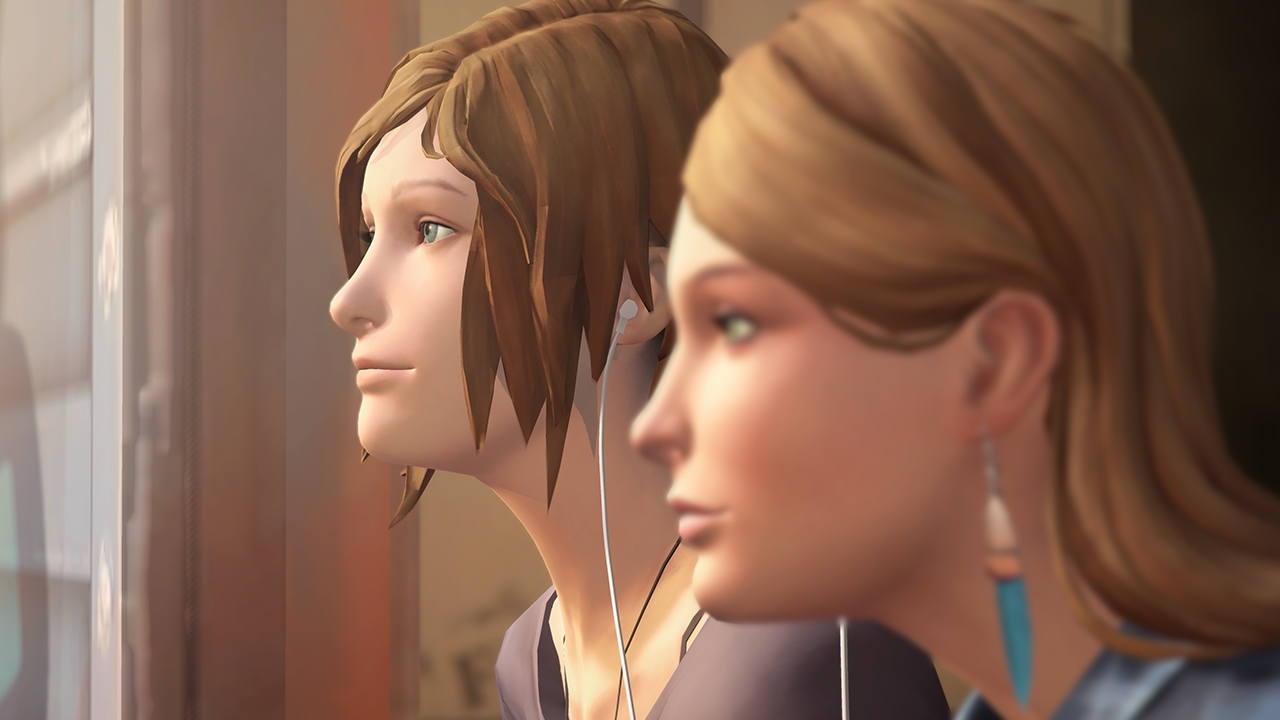
"We try to give you some better reasons to take the more aggressive choice sometimes, the less nice choice."
Chris Floyd
You know how, if you say the same word over and over, it loses all meaning, and starts to sound like an alien language? Does that ever happen when you have to do multiple takes of the same line of game dialogue?
Burch: Yeah! [laughs] Sometimes it can feel like, "Oh no, I've lost the thread of why I'm saying this." That can happen sometimes. In my experience, it's about communicating with the director - like if that's the case, just saying "I might need a second to reorient." There are certain lines in the Farewell episode that are very important, that had a particular cadence that needed to be hit. There's a fair bit of calibrating that you might need to do. That's another way voice acting is different from on-camera: voice actors are expected to be technical in that way. You have to be able to do three different takes that sound distinct from one another, then keep working on them if you're not getting the director what they need.
Have you ever had a role where you were just a one-take wonder? Is that even a thing in voice acting?
Burch: Sometimes. Definitely later on in the Life is Strange season one recording, we were all pretty tuned into who these characters were. There wasn't a whole lot of finagling that needed to be done, I don't think. Same thing for the Frozen Wilds DLC [for Horizon Zero Dawn] - I know Aloy really well now, so there's not a whole lot of adjusting once you feel like you've really known a character.
Floyd: From a game developer's standpoint, I think our team would agree that one of the reasons people love Chloe so much is because of Ashly's performance in the first season. It's vital. When we're telling stories, especially ones that are so emotionally resonant and deep, you need performances that can live up to that. A lot of video games, especially in generations past, haven't been able necessarily to hit that. I think now we're starting to really get to the point, with the help of professional actors, and studios, and processes, to be able to match that mark. Performances are vital. We spend a lot of time auditioning our actors and trying to find just the right person, because it matters a lot.
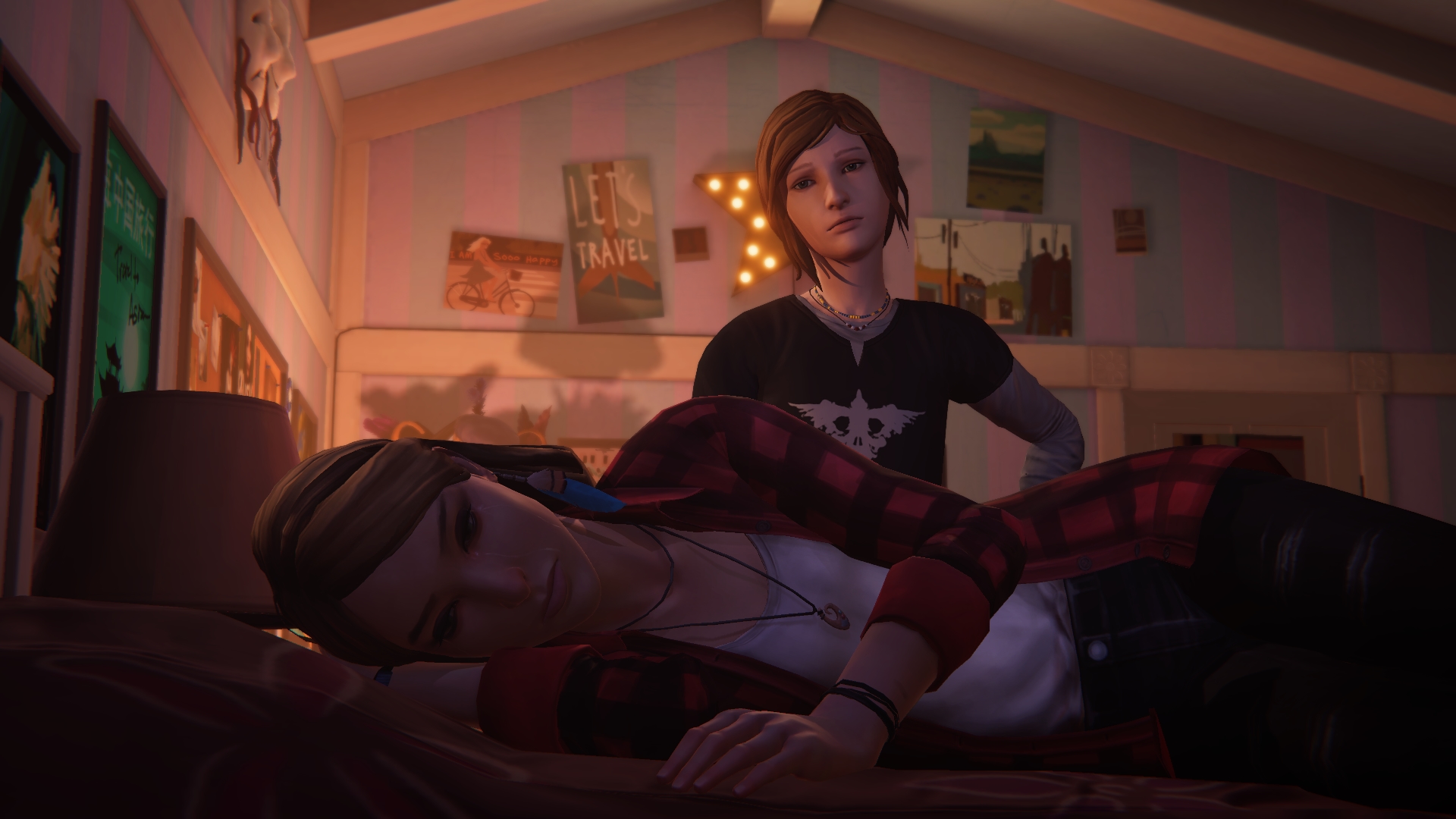
Is there some magic number of "That choice will have consequences" moments you try to hit in each episode?
Floyd: Yes and no. There's definitely an ideal range. The story is ultimately what comes first and what's most important. If [a consequence] doesn't accommodate that, it's something we can sacrifice if it means getting the right scenes and the right moments overall. We look at the narrative arc very early on and say, "Where are our major choices? What are some of our minor choices?" The hardest thing is looking at those and saying, "Where are the consequence points for these choices?" They're not just isolated to that particular scene. The best choices have consequences that come much later. Then we have to remember when we get deep into writing Episode Three or whatever, it's like, "Oh yeah, we never did have a strong consequence to that thing," and work it in.
In terms of all the statistics that are stored for each choice, did any of the overall playerbase's decisions in Before the Storm really surprise you?
Floyd: It seems like people have been a little more kind or cooperative with David and Joyce, maybe more than we were expecting. I think a lot of that might be sympathy for Joyce, in many ways. I hear that a lot when watching Let's Plays and things like that - there are a lot of people who can really, really sympathize with Joyce; I certainly can, as a parent. [Early on in Episode One of Before the Storm], she tells Chloe, "Maybe you're 16 and don't know what you want." Yeah, that sounds familiar. [laughs] Even though David is sometimes just atrocious, I think players know, "He's important to Joyce. Maybe I need to give her a break."
It's funny - I feel like I believe in the inherent goodness of people whenever I see the post-episode stats. It seems like, more often than not, during binary choices where you get to be mean or be comforting, it's like an 80/20 split towards kindness. Floyd: To be honest, it's actually something we have to fight against sometimes. Like I say, when we're trying to balance those choices, sometimes one of the factors is how people will generally take the more cautious choice or the nicer choice by default. We often have to give them some reason to...
Burch: Be more aggressive.
Floyd: [laughs] To be a little more aggressive, especially when you're playing a character like Chloe. We feel like that's one of the things that's fun about playing Chloe: the chance to break the rules a little bit. We try to give you some better excuses and better reasons to take the more aggressive choice sometimes, the less nice choice. It's sort of giving you permission to be kind of a brat or difficult or prickly or whatever. We don't just give you the kind of safe, Max-style choice, for sure. Then, of course, the Backtalks are often a place where just go whole hog with it and let Chloe be a pain in the butt. [laughs]
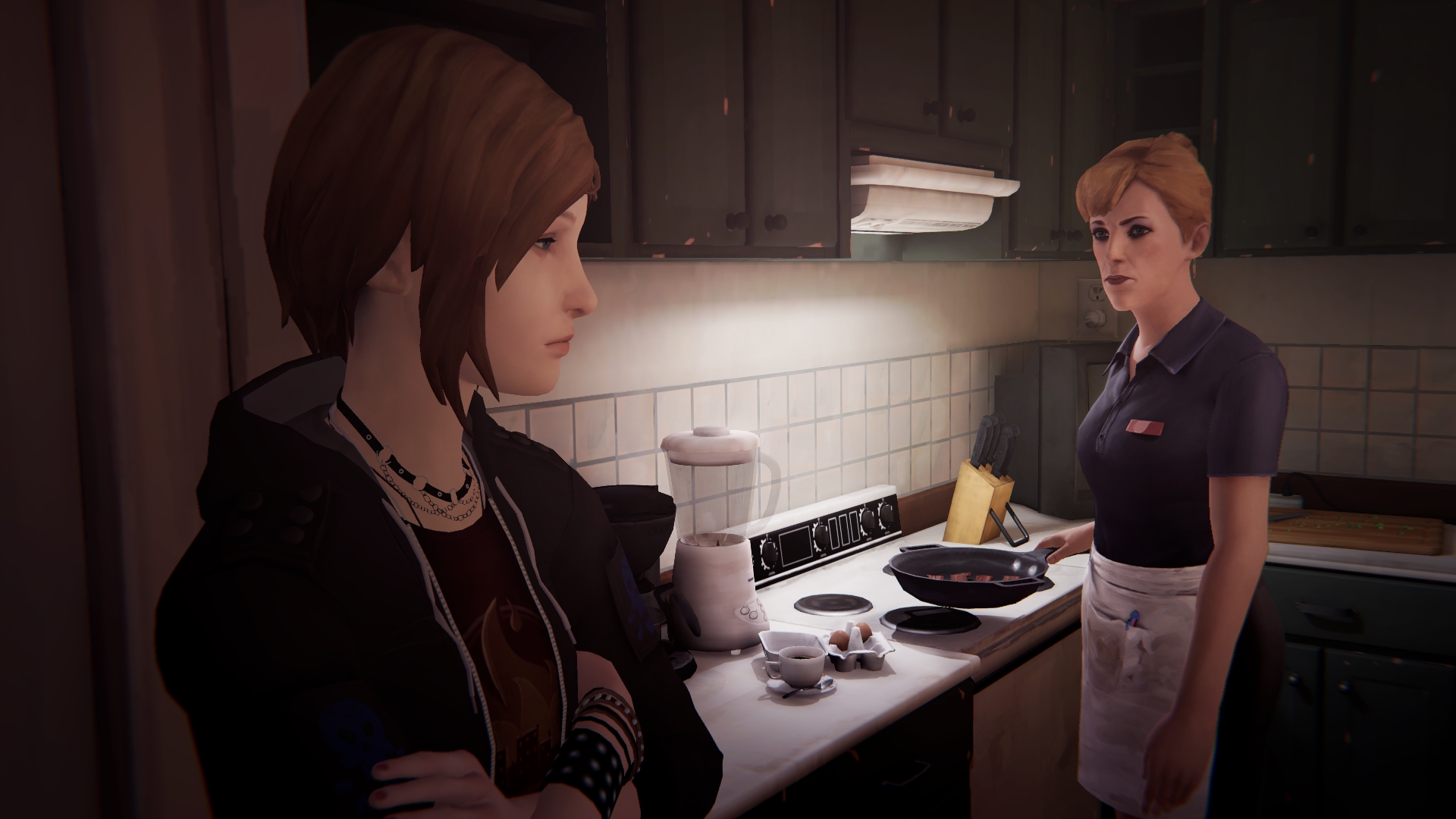
With narrative-driven games, how often do you think players roleplay their character and make choices they think that character would pick, versus what they want to pick themselves?
Floyd: I've been a little surprised at this. My data comes from, again, watching Let's Plays, because people will talk about it. They'll talk about it in terms of roleplaying, saying "I was playing Chloe this way in that scene." It comes down to a lot of things, like how do you relate to Joyce. "I was playing Chloe as the real rebel, so I was playing this way." Some people say, "I wanted to be a little more compassionate with Chloe." I definitely think some people will go the "Let me choose what I would choose" path - but I feel like that's something they're more likely do with Max, who gives you a little more room, or is a little less imposing, from a character perspective, on the player. I think because players know Chloe so well and they love her for [having such a strong personality], they're often willing to go along with it.
Burch: When I was younger, I would only ever pick kind approaches. The thing that changed me was Mass Effect, because of all the really fun Renegade options. As soon as I found out that in Mass Effect 2, you can headbutt that Krogan who talks shit to Grunt, I was like, "Dammit, why didn't I do that!? I love Grunt. Screw that guy!" [laughs] Now, when I'm playing games like Oxenfree, for example, I'm roleplaying what I think a teenager in that circumstance would do and how they would act. I think it's honestly more fun for me. I have to think about, "Would I divulge this information so quickly?" It's interesting.
When you have such a deep connection to a character like Chloe, were there ever times where you felt like you had to draw a line? Like, "Maybe I'm getting too invested in this?"
Burch: I'll be transparent: in the first season of Life is Strange, after some of the sessions, it was like I had to go do [something else] afterwards. I was like, "I've got to go, guys. I'm sorry." There are a lot of parallels between me and Chloe in different ways. I definitely invested a lot of myself in that character. Interestingly, strangely, some downtime becomes part of your self-care regimen as an actor. It's odd. You need to make sure you're doing vocal warmups and drinking tea - and if you have a really emotional scene, you have to make sure to take care of yourself afterwards.
Lucas Sullivan is the former US Managing Editor of GamesRadar+. Lucas spent seven years working for GR, starting as an Associate Editor in 2012 before climbing the ranks. He left us in 2019 to pursue a career path on the other side of the fence, joining 2K Games as a Global Content Manager. Lucas doesn't get to write about games like Borderlands and Mafia anymore, but he does get to help make and market them.



